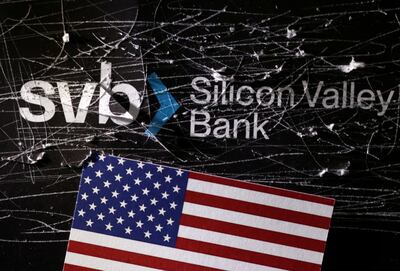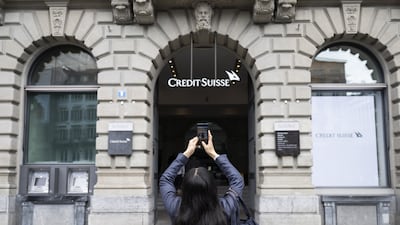Many of us struggle to live with uncertainty, despite it being one of life’s constants. International investors and the banking sector, it seems, struggle with it more than most, if the events of the past 48 hours are anything to go by.
The swift purchase of ailing Credit Suisse by its rival UBS for $3.23 billion, in an audacious attempt to steady the ship of global finance, will result in a wealth manager with more than $5 trillion in total invested assets. This has taken place with the backing of the Swiss state, which allowed the merger to go through without the approval of shareholders and agreed to guarantee 150 billion Swiss francs ($162 billion) of liquidity to Credit Suisse, well beyond the 50 billion francs figure that was announced publicly.
It is the first big test of banking regulation in times of stress since the anarchy of the 2007-2008 financial crisis. The emergency move has been welcomed by the European Central Bank, the US Treasury and the Bank of England.

And yet, no one is quite sure if these steps – coupled with recent US government intervention after the Silicon Valley Bank collapse – will calm the markets and prevent the contagion from spreading further. This is because banks rely on trust. As with much of our personal spending, financial decisions are often driven by emotion. When even a 167-year-old banking giant like Credit Suisse needs an emergency lifeline, it is perhaps understandable that investors and markets have a lukewarm reaction.
That said, the initial signs following the 11th-hour deal are positive and it may be that this intervention staves off wider chaos, avoiding a repeat of 2007-2008. In the US, a marker appeared to have been laid down when decisive action was taken over SVB, such as removing senior management and making sure American taxpayers were not left to foot the bill. President Joe Biden also took the time to hit out at his predecessor Donald Trump’s administration for gutting the banking regulations that were created during the fallout from 2008.
But is it clear that global markets are skittish and unsettled, reflecting the fitful and uneven recovery that has taken place since the Covid-19 pandemic largely ended. External factors such as international sanctions and the continuing war in Ukraine remain destabilising factors.
It is also important to remember that turmoil in the banking sector does not just affect high-rollers. Employees of many of the US start-ups affected by the fall of SVB saw their salary payments affected – that meant trouble for thousands of people trying to pay the bills and provide for their families. As Credit Suisse chairman Axel Lehmann said, the focus is now on the future and the 50,000 Credit Suisse employees, 17,000 of whom are in Switzerland.
Have the lessons of 2007-2008 been learned? In 2022, a paper from the Peterson Institute for International Economics found that “stability will be enhanced if the global community embraces reforms that elevate market resilience, rather than depending on skillful policymakers wielding aggressive but ad hoc policy interventions to ride to the rescue again”.
Sadly, it seems that last-gasp buyouts and emergency state intervention are still part of the international financial playbook. But it may be that SVB and Credit Suisse become the near-misses that proved the wisdom of not allowing failing banks to take down the financial edifice of entire economies. The future is far from certain but success here could be the first step on the road to restoring that most valuable banking commodity – trust.


